
Sorry, your browser is not compatible with this application. Please use the latest version of Google Chrome, Mozilla Firefox, Microsoft Edge or Safari.
Defense content

Software Factory 2.0: A New Operating Model for...
Software Factory 2.0 proposes a new operating model for military mission software that treats software delivery as a warfighting capability rather than an IT support function. It addresses widespread federal…
Learn More

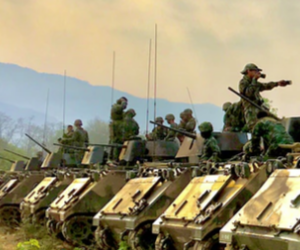
The Coming Blitzkrieg
Emerging drone technologies and autonomous systems are transforming maneuver warfare, creating the conditions for a new “blitzkrieg” driven by massed robotic and armored formations. The paper argues that future armies…
Learn More

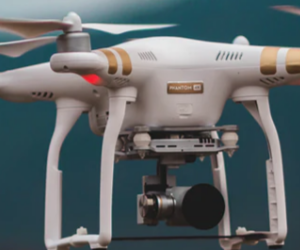
Are Drones a Maneuver Force?
This article explores whether unmanned systems should be considered a maneuver force, examining how drones are transforming modern warfare. It analyzes the operational, doctrinal, and organizational implications of integrating unmanned…
Learn More


SOF Renaissance
SOF Renaissance outlines how U.S. Special Operations Forces are adapting to a rapidly changing security environment shaped by strategic competition, emerging technologies, and converging global threats. The document emphasizes people-first…
Learn More

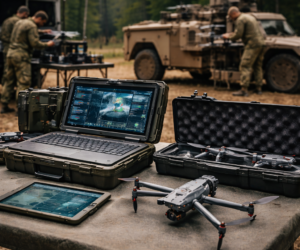
Why the Army Needs Units Driving Drone...
Drone warfare is evolving faster than traditional military acquisition processes can keep pace. This paper examines why operational Army units must play a more direct role in shaping drone development,…
Learn More

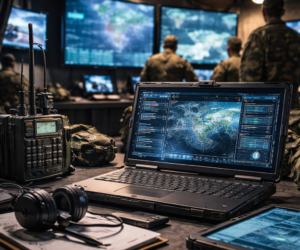
Beyond the Network
Modern warfare is defined by speed, disruption, and constant contest across physical, cyber, and electromagnetic domains. This paper examines how the Army Signal Corps is evolving from a traditional support…
Learn More


The Military Needs Frontier Models
As artificial intelligence becomes more embedded in military decision-making, not all models offer the same level of capability or reliability. This paper explains why frontier AI models—built with far greater…
Learn More


To Build the Nation’s Might: Tradition and...
This special report traces how the U.S. Army has evolved over 250 years in response to changing threats, technologies, and national priorities. It explores the balance between tradition and adaptation—from…
Learn More


C-NOte #3
This message outlines the Navy’s role as a cornerstone of national power, emphasizing readiness, deterrence, and global presence across all domains. It highlights how integrated forces, modernization efforts, and disciplined…
Learn More


The TRIAD
This publication offers a close look at the people, systems, and partnerships that sustain the nation’s nuclear deterrence mission. Through operational updates, international collaboration, training initiatives, and modernization efforts, it…
Learn More


Driving Innovation: Propelling the U.S. Department...
This white paper explores how hybrid-electric propulsion could reshape the U.S. Department of Defense’s tactical vehicle fleet. It examines historical lessons, current operational challenges, and the strategic risks of relying…
Learn More


Icebreaker Collaboration Effort U.S. National...
This national workforce development plan outlines how the United States will build and sustain the skilled labor needed to design and construct polar icebreakers domestically. Developed in coordination with international…
Learn More

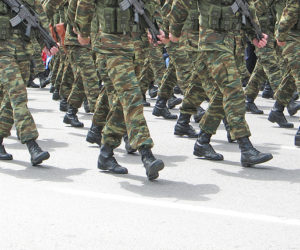
Pounds for Pain
The modern rifle squad faces increasing physical demands as evolving threats and new capabilities add weight to every mission. This article explains how improper load management reduces mobility, situational awareness,…
Learn More


Threat Focus: Salt Typhoon
Salt Typhoon represents one of the most persistent and sophisticated state-sponsored cyber threats targeting U.S. and allied networks. The group quietly infiltrates telecom, government, and military systems, using advanced malware…
Learn More


Transforming the Public-Sector: Quantum-Powered...
Quantum computing is emerging as a practical tool for improving government efficiency and mission success across logistics, national security, infrastructure, and public services. With the ability to solve highly complex…
Learn More


